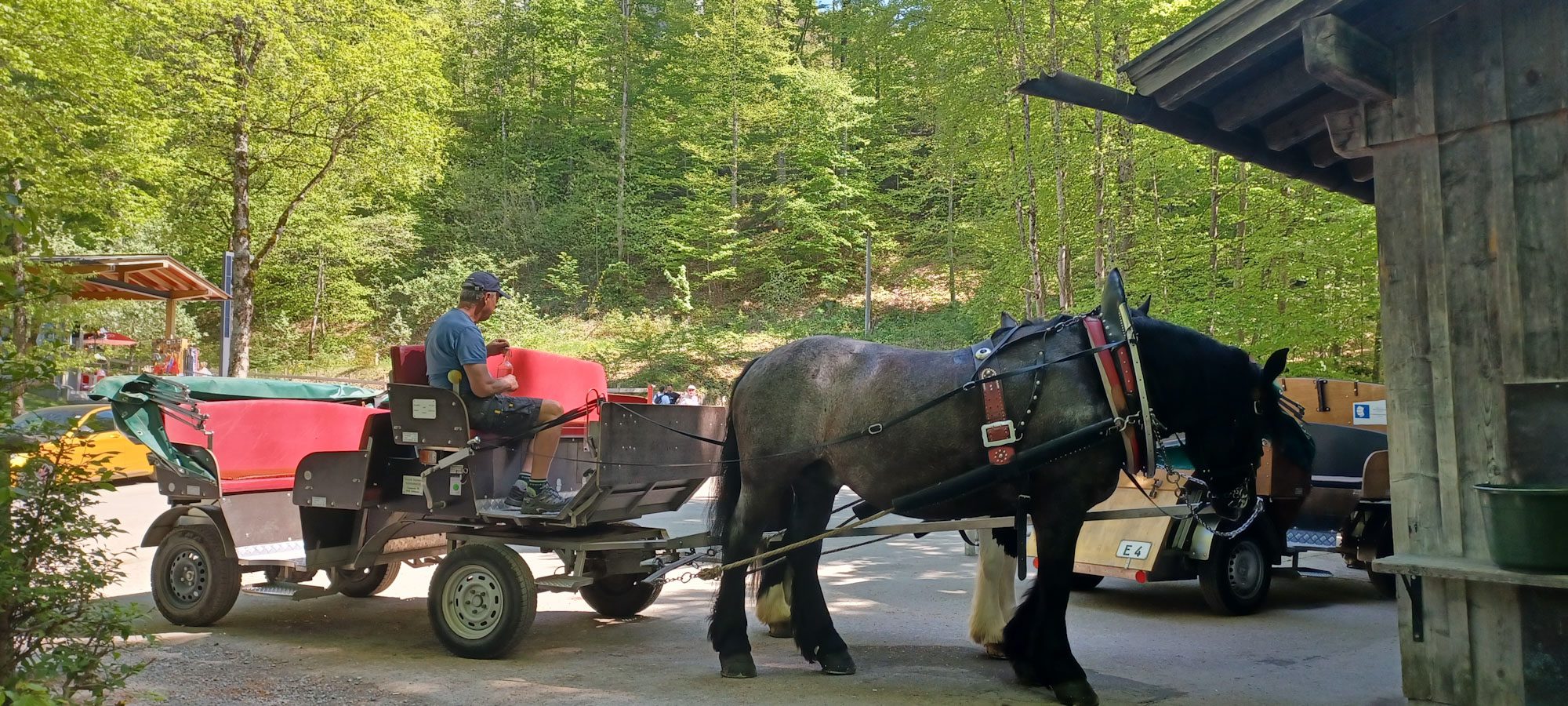
Why Responsible Tourism Matters: True Nomadism Vs Modern Digital-Age Travel
In an age when travel stories are shaped more by Instagram captions than lived experience, the romantic image of the nomad has taken a turn. From digital nomads in Bali to van-lifers on scenic coastal highways, we are surrounded by visuals that glorify travel as a glamorous, near-perfect lifestyle—one that seems effortlessly attainable. But in reality, to travel far, to travel deep, and to truly travel to learn requires hard work, discomfort, and a willingness to fail. Behind the lens, what we see is not always what should define the journey—it’s only a curated sliver of a much messier, more meaningful truth. Responsible tourism matters now more than ever because it encourages us to look beyond the image and embrace travel rooted in intention, connection, and cultural respect.
Travel once offered a path to self-discovery, reflection, and connection. Today, many reduce it to metrics—likes, follows, and the bragging rights of having “been there first.” Performative wanderlust now drowns out the true heart of travel.
The Fine Line
A nomad seeks meaning in movement. A nomad may roam far and wide, but carries with them a stillness—a centre that is rooted in responsibility, emotional presence, and the courage to return.
Many people who identify as nomads are not searching for the unknown. They are simply unwilling to engage and reflect while travelling. Travel freedom is not the absence of connection. Freedom is the ability to choose connection with clarity.
True nomads can love. They can stay grounded in their hearts, even if their feet never rest.
The Myth of the Vagabond
There was once someone I knew—he called himself a wanderer, a vagabond, a soul untethered. He spoke of wild terrains, spiritual journeys, and solitude beneath the stars. His stories were poetic, his demeanour romantic. But behind the poetry lay something else—avoidance.
He could weather mountain storms but not emotional intimacy. He could stay alone in the desert for days, but not sit through a difficult conversation. His journeys weren’t acts of exploration. They were strategies of escape.
He wasn’t a nomad. He was a runaway.
This is where we must draw a line: between those who move to engage more deeply with the world, and those who move to disengage from themselves.
The True Essence of Responsible Tourism
Responsible tourism isn’t just about reducing carbon footprints or banning plastic straws. It’s about travelling with integrity. It’s about understanding that every photograph taken, every experience shared, and every village entered leaves an impact.
- Are we enriching the culture—or extracting from it?
- Are we engaging with locals—or using them as props?
- Are we seeking transformation—or simply attention?
In its purest form, responsible tourism is a commitment to travel that respects local communities, protects cultural heritage, and fosters mutual understanding. It demands awareness, humility, and an ability to be present—not just perform.
Social Media and the Rise of Performative Travel
Today, travel is too often curated for an audience instead of lived for the soul. The hashtags say #wanderlust, but the motivations say #validation.
- Solo trips become selfies in scenic spots
- Cultural rituals become aesthetic reels
- Experiences are edited, not embodied
This obsession with constant documentation dilutes the depth of our travels. We become actors in a script written for social approval, not seekers of authentic experiences.
And this comes at a cost.
The Loss of True Nomadism in the Digital Age
Another painful truth is this: real nomadism is losing its essence. Today, the idea of being a wanderer has been co-opted by digital influence and social media performance. Too many self-proclaimed explorers are obsessed with glory—not growth. They crowd their narratives with over-glorified adjectives, chasing vanity metrics and hollow validation.
Real nomadism is being diluted. It’s no longer about storytelling or self-discovery; it’s about proving that one was the “first.” Today’s digital-age “explorers” are too often obsessed with glory, not growth. The need to be the first—first ascent, first crossing, first solo attempt—has turned travel into a contest. The rush to be seen, to be idolised, has turned travel into a competitive sport of one-upmanship. And young minds are watching. Idolizing. Emulating.
The very act of travel—once personal and poetic—is now packaged for followers and fame. The compass no longer points north; it points to the next opportunity for recognition.
Once, being a wanderer meant stepping into silence, uncertainty, and self-inquiry. Now, it often means chasing Wi-Fi and framing reality for likes.
But real exploration doesn’t shout. It listens. It doesn’t chase applause. In the process, it seeks understanding. The truest journeys are often unrecorded, unphotographed, unnamed.
For a deeper reflection on how travel is being commodified in today’s world, this thought-provoking piece—When Journey Becomes a Product—explores the unsettling shift from soulful exploration to curated performance. It echoes the growing need to pause and question what we’re truly seeking when we set out to travel.
The Impact of Over-Tourism on People and Places
The result of unchecked, unconscious travel? Over-tourism.
Destinations like Venice, Ladakh, Bali, and Santorini are not just suffering from crowding—they’re struggling with identity erosion. Tourism-driven trends are reshaping local livelihoods, replacing traditional practices. People are turning sacred rituals into public spectacles. Tourists are overwhelming fragile ecosystems.
This is not romantic. This is exploitation masked as exploration.
In India, regions like Ladakh, Spiti Valley, Shimla and Goa are seeing the double-edged impact of increasing footfall—creating opportunities for local communities, but also causing strain on fragile ecosystems and cultural sanctity. As a travel company rooted in India, we’ve witnessed firsthand how responsible travel choices can either nurture or disrupt the spirit of a place.
In Praise of the True Nomad
True nomads exist. They may not post often. They may travel slowly, sometimes silently. But they engage with people, not just places. They carry stories, not souvenirs.
- They return to the same village year after year
- They listen more than they speak
- They embrace discomfort as part of the journey
- They tread lightly, with respect.
These are the travellers who embody mindful travel. They don’t need to announce their freedom. They live it—quietly, responsibly.
The Soul of Travel Still Exists—If We Choose It
Travel was never meant to be an escape from reality. It was meant to bring us closer to the real—to cultures, to landscapes, to one another, and to ourselves.
As travellers, we now face a choice:
- Will we continue feeding the algorithm?
- Or will we reclaim the soul of travel?
Let us not glorify those who vanish after their vacation to avoid being known. Let us instead celebrate those who stay—who show up, who connect, who leave behind not clutter but kindness.
Final Thoughts: Your Journey, Your Responsibility
If you’ve ever felt the tug to wander, ask yourself: Why do I want to go? So, is it for peace, or for proof?
Travel with intention and empathy. Travel not to be seen, but to see.
At Travel With Susmita, we believe in journeys that matter. Not just for you—but for the world you walk upon.
Join us in championing responsible tourism—one meaningful journey at a time.
Explore More Meaningful Journeys
At Travel With Susmita, we offer curated journeys that honour the essence of mindful travel.
Explore our immersive experiences like the Ladakh Signature Tours and Jordan in Style tour, designed with cultural respect and conscious pacing at their core.
Frequently Asked Questions (FAQs)
What is responsible tourism, and why does it matter?
Responsible tourism refers to mindful travel that respects local communities, protects the environment, and fosters cultural understanding. It matters because unchecked tourism can damage ecosystems, dilute traditions, and create long-term harm to destinations.
How can I travel sustainably in India or abroad?
Choose local accommodations, reduce plastic use, respect cultural norms, support local artisans, and opt for slower, more profound travel experiences. Travel With Susmita prioritises these elements in every itinerary.
What are examples of mindful travel practices?
Examples include participating in local rituals with permission, learning basic local phrases, minimising waste, avoiding overcrowded attractions, and being present—not performative—during your journeys.
Recent Posts
- Shaping Curious Minds: Travel With Susmita × Ganit Charcha
- Why Responsible Tourism Matters: True Nomadism Vs Modern Digital-Age Travel
- Why North East India is Asia’s Best-Kept Secret for Culture-Driven Explorers
- Exploring India One City at a Time: Why Kolkata Deserves a Spot on Your Travel Bucket List
- Luxury with a Local Touch: Why Premium Doesn’t Mean Mainstream
- The Chronicles Of Laos – Episode III: Vientiane Travel Guide through the Eyes of a Solo Traveller
- Golden Triangle and Beyond: The Colours and Forts of Jaipur
- Golden Triangle and Beyond: The Timeless Wonders of Agra
- Golden Triangle and Beyond: First Impressions of Delhi
- From the Silk Road to Scenic Valleys: A Solo Traveller’s Tale in Kazakhstan
Popular Posts
- Monsoon Travel Tips: A Comprehensive Guide with 60 Essential Tips for a Rainy Season Adventure
- From the Silk Road to Scenic Valleys: A Solo Traveller’s Tale in Kazakhstan
- Golden Triangle and Beyond: The Timeless Wonders of Agra
- Golden Triangle and Beyond: The Colours and Forts of Jaipur
- Golden Triangle and Beyond: First Impressions of Delhi
- The Chronicles of Laos – Episode I – Getting Ready
- How to plan a trip to Ladakh
- Backpacking Europe 2022 | Two Weeks in The Netherlands | Reaching and Exploring Hellevoetsluis
- Solo Female Traveller: More Than a Trend, Embracing a Lifestyle
- Explore Europe with Eurail: My Summer Adventure
.png)
